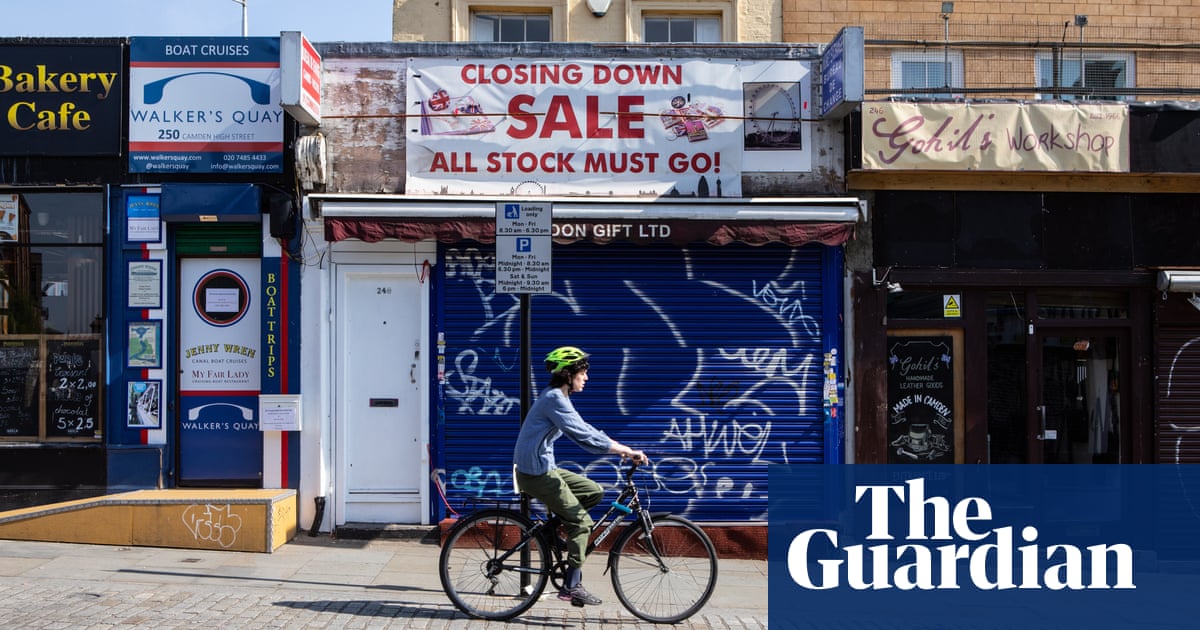
Trade union leaders are warning of a wave of synchronised strikes by civil servants and public sector workers in Britain this winter, as a new poll for the TUC showed one in seven people across the UK are skipping meals because of the cost of living crisis.
As trade unionists met for the annual TUC congress in Brighton, Mark Serwotka, the head of the PCS union, representing 150,000 civil servants, said it stood ready to strike on the same day as others if its workplaces voted for industrial action in November.
“If we win those ballots, we stand prepared to take action on the same day as any other union to show the government we strike together,” he said.
He suggested road officials could take action on the same day as rail workers, and Border Force officials on the same day as airport staff, to cause maximum disruption.
Serwotka was among a string of trade union chiefs who intensified their warnings of coordinated strikes across multiple sectors this winter to cause more disruption, increase effectiveness and try to win pay disputes.
With unions pushing for higher pay to match inflation at 10%, the TUC released polling showing one in seven people are skipping meals and going without food.
Its MRP survey of more than 10,000 people, undertaken by Opinium, revealed that in almost 50 constituencies the number rises to one in five people going hungry.
It also found more than half of Britons cutting back on heating, hot water and electricity.
However, there are splits within the unions over their response to the pay crisis, with some pushing their organising body, the TUC, to do more in terms of organising synchronised strike action.
Mick Lynch, the general secretary of the RMT, which is balloting to extend the mandate for rail strikes, told a fringe meeting: “We need an uprising. We need a whole wave of synchronised, coordinated action. I don’t care what it’s called.
“I don’t care if Paul Nowak or Frances [O’Grady, the incoming and outgoing general secretaries of the TUC] are the ones that coordinate it as long as they don’t get in the way – we can get on with it ourselves, frankly.”
He cautioned union members to “beware of the TUC”, claiming that the body had tried in the past to strike a deal with the Conservative government on strike laws in return for digital voting on ballots. “We’ve got to keep them keen and make sure there’s no sellout,” Lynch said.
O’Grady, giving her last keynote address to the congress, said coordinated action was “already happening”. She said: “When workers are left with no choice but to vote for strike action for decent pay, I say: bring it on.”
She later told the Guardian: “We’ve had a number of meetings already. Obviously in [some] sectors it can make particular sense to synchronise days and timing.
“In other areas, what I see is clearly a wave of action happening, and you can have sensible discussions about what’s more industrially effective. Synchronisation can be. Sometimes, actually, it’s better not to have everything on the same day.”
Asked about Lynch’s comments, O’Grady said: “Everybody’s entitled to their opinion,” but she insisted the TUC would oppose the government’s plans to legislate for minimum service levels during public sector strikes.
She said: “We’ve taken legal counsel and we’re very clear that it’s highly likely to be unlawful if they try to do it.”
Unions have announced a huge number of strike ballots this autumn, with nurses, health workers, ambulance workers, and civil servants all among those currently considering whether to vote for strikes over the winter.
The school leaders’ union, the NAHT, told congress that headteachers would be balloted on industrial action in a row over pay and funding, in a 125-year first.
Several union general secretaries told the congress that they stood ready to coordinate action, although all steered clear of calling for a general strike.
Christina McAnea, the general secretary of Unison, which is balloting 400,000 health workers, said: “Coordinated action unites us and we have a single goal: end this pay crisis in this country.”
Andy Kerr, the deputy general secretary of the CWU, the postal workers’ union, said he supported “coordinated industrial action to defend ourselves”, and Steve Gillan, of the Prison Officers’ Association, said his members would strike if they were allowed to. The CWU has 160,000 people on strike this Thursday.
Serwotka was one of the most stridently in favour of coordination, telling a PCS fringe meeting that the stakes were incredibly high.
“If we do not win, people will die of malnutrition, they will die of hypothermia. They will die on our streets,” he said.
Paul Whiteman, the general secretary of the NAHT, said members had told him they “cannot continue to run their schools in the current circumstances”, and neglect of pay and funding was eroding education.












